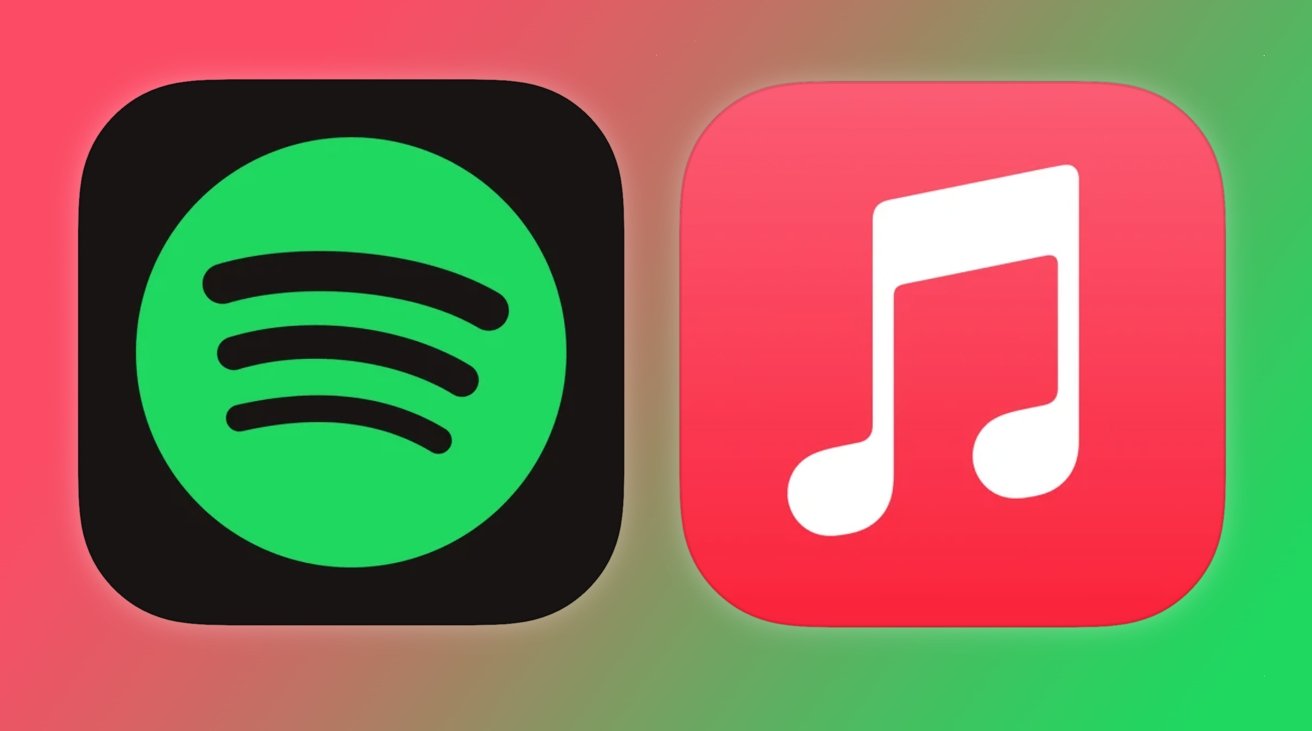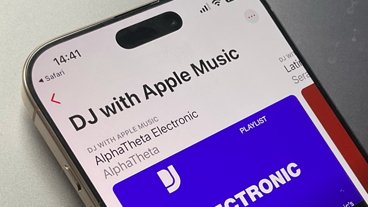The European Union has levied a massive fine against Apple for anticompetitive behavior in a market that it does not hold the dominant position — music streaming.
The fine was announced live by The European Commission's competition head, Margarethe Vestager. In levying the fine, she said that Apple violated antitrust rules by not allowing developers to tell users in the App Store that there were other options other than Apple Music.
"For a decade, Apple abused its dominant position in the market for the distribution of music streaming apps through the App Store," Vestager said. "They did so by restricting developers from informing consumers about alternative, cheaper music services available outside of the Apple ecosystem. This is illegal under EU antitrust rules, so today we have fined Apple over [2 billion euro]."
Apple Music is either the third or fourth largest streamer in the European Union. Spotify holds the lead position with about 56% of the European streaming market.
Spotify has made a statement, and is clearly pleased with the fine.
Apple's rules muzzled Spotify and other music streaming services from sharing with our users directly in our app about various benefits— denying us the ability to communicate with them about how to upgrade and the price of subscriptions, promotions, discounts, or numerous other perks. Of course, Apple Music, a competitor to these apps, is not barred from the same behaviour.By requiring Apple to stop its illegal conduct in the EU, the EC is putting consumers first. It is a basic concept of free markets— customers should know what options they have, and customers, not Apple, should decide what to buy, and where, when and how.
Beyond saying that it will appeal, Apple has already made a statement regarding the matter.
Today, the European Commission announced a decision claiming the App Store has been a barrier to competition in the digital music market. The decision was reached despite the Commission's failure to uncover any credible evidence of consumer harm, and ignores the realities of a market that is thriving, competitive, and growing fast.The primary advocate for this decision — and the biggest beneficiary — is Spotify, a company based in Stockholm, Sweden. Spotify has the largest music streaming app in the world, and has met with the European Commission more than 65 times during this investigation.
Today, Spotify has a 56 percent share of Europe's music streaming market — more than double their closest competitor's — and pays Apple nothing for the services that have helped make them one of the most recognizable brands in the world. A large part of their success is due to the App Store, along with all the tools and technology that Spotify uses to build, update, and share their app with Apple users around the world.
We're proud to play a key role supporting Spotify's success — as we have for developers of all sizes, from the App Store's earliest days.
Later on in the statement, Apple makes a clear point about Spotify's market position in the EU.
"The reality is that European consumers have more choices than ever," Apple says. "Ironically, in the name of competition, today's decision just cements the dominant position of a successful European company that is the digital music market's runaway leader."
The entire statement spells out Apple's fee structure, Spotify's use of the App Store, and what Spotify gets from Apple being on the App Store.
Back in 2019, Spotify complained to the EU that Apple was abusing its monopoly by forcing developers to use the App Store's payment system. At the same time, the music streamer claimed that Apple was also unfairly denying it the ability to inform users of lower prices on its website.
In response, the EU began an investigation, and in 2021 issued a preliminary report. That report did say that Apple was in breach of EU laws over the promotion restrictions, or anti-steering measures.
Perhaps in response to these probes, Apple changed the payout structure of the App Store, with a new 15% tier for subscriptions that extend over a first year, instead of the blanket 30% that Spotify still claims Apple demands on all subscriptions.
Apple also made a new free reader tier of apps to deal with complaints such as this from Spotify and others.
 Mike Wuerthele
Mike Wuerthele







-m.jpg)






 Amber Neely
Amber Neely

 William Gallagher
William Gallagher


 Andrew Orr
Andrew Orr
 Wesley Hilliard
Wesley Hilliard







78 Comments
This is part of what the EU had to say:
"Today's decision concludes that Apple's anti-steering provisions amount to unfair trading conditions, in breach of Article 102(a) of the Treaty on the Functioning of the European Union (‘TFEU'). These anti-steering provisions are neither necessary nor proportionate for the protection of Apple's commercial interests in relation to the App Store on Apple's smart mobile devices and negatively affect the interests of iOS users, who cannot make informed and effective decisions on where and how to purchase music streaming subscriptions for use on their device.
Apple's conduct, which lasted for almost ten years, may have led many iOS users to pay significantly higher prices for music streaming subscriptions because of the high commission fee imposed by Apple on developers and passed on to consumers in the form of higher subscription prices for the same service on the Apple App Store.
... "
Apple makes no reference to its anti-competitive behaviour in its statement and instead tries to put the spotlight on Spotify, its European nature and music streaming.
Another EU money grab.
I hope these costs are directly passed along to purchasers of Apple products in Europe.
$2 Billion?!? wow just like?, "just like that"
The EU does not generate enough profit for Apple to be happy about a $2B fine. That is going to hurt. Why for all this, when Apple was responding to DMA and making